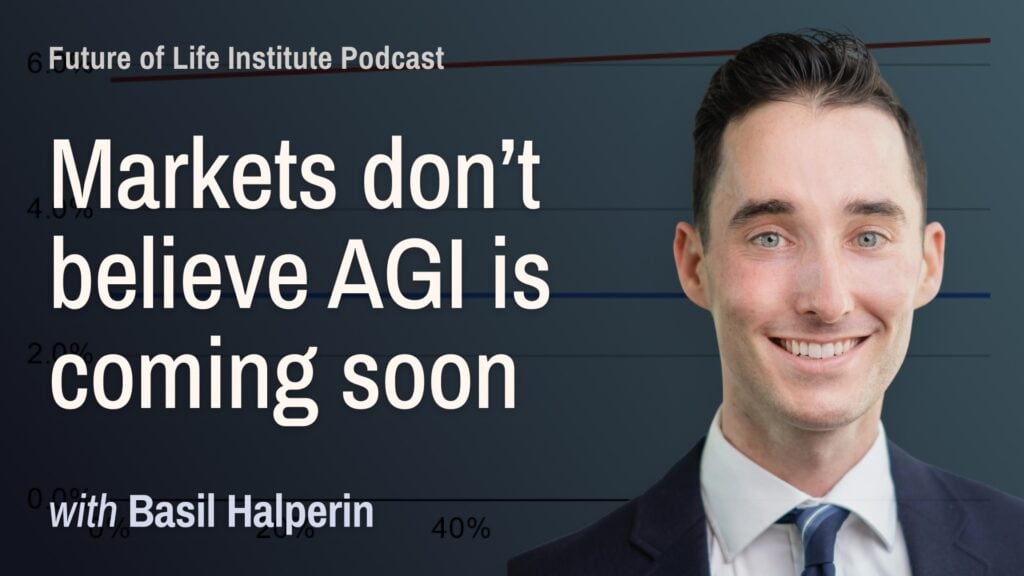The Wisdom Race Is Heating Up

Contents
There’s a race going on that will determine the fate of humanity. Just as it’s easy to miss the forest for all the trees, however, it’s easy to miss this race for all the scientific news stories about breakthroughs and concerns. What do all these headlines from 2015 have in common?
“AI masters 49 Atari games without instructions”
“Self-driving car saves life in Seattle”
“Pentagon Seeks $12Bn for AI Weapons”
“Chinese Team Reports Gene-Editing Human Embryos”
“Russia building Dr. Strangelove’s Cobalt bomb”
They are all manifestations of the aforementioned race heating up: the race between the growing power of technology and the growing wisdom with which we manage it. The power is growing because our human minds have an amazing ability to understand the world and to convert this understanding into game-changing technology. Technological progress is accelerating for the simple reason that breakthroughs enable other breakthroughs: as technology gets twice as powerful, if can often be used to used to design and build technology that is twice as powerful in turn, triggering repeated capability doubling in the spirit of Moore’s law.
What about the wisdom ensuring that our technology is beneficial? We have technology to thank for all the ways in which today is better than the Stone Age, but this not only thanks to the technology itself but also thanks to the wisdom with which we use it. Our traditional strategy for developing such wisdom has been learning from mistakes: We invented fire, then realized the wisdom of having fire alarms and fire extinguishers. We invented the automobile, then realized the wisdom of having driving schools, seat belts and airbags.
In other words, it was OK for wisdom to sometimes lag behind in the race, because it would catch up when needed. With more powerful technologies such as nuclear weapons, synthetic biology and future strong artificial intelligence, however, learning from mistakes is not a desirable strategy: we want to develop our wisdom in advance so that we can get things right the first time, because that might be the only time we’ll have. In other words, we need to change our approach to tech risk from reactive to proactive. Wisdom needs to progress faster.
This year’s Edge Question “What is the most interesting recent news and what makes it important?” is cleverly ambiguous, and can be interpreted either as call to pick a news item or as asking about the very definition of “interesting and important news.” If we define “interesting” in terms of clicks and Nielsen ratings, then top candidates must involve sudden change of some sort, whether it be a discovery or a disaster. If we instead define “interesting” in terms of importance for the future of humanity, then our top list should include even developments too slow to meet journalist’s definition of “news,” such as “Globe keeps warming.” In that case, I’ll put the fact that the wisdom race is heating up at the very top of my list. Why?
From my perspective as a cosmologist, something remarkable has just happened: after 13.8 billion years, our universe has finally awoken, with small parts of it becoming self-aware, marveling at the beauty around them, and beginning to decipher how their universe works. We, these self-aware life forms, are using our new-found knowledge to build technology and modify our universe on ever grander scales.
This is one of those stories where we get to pick our own ending, and there are two obvious ones for humanity to choose between: either win the wisdom race and enable life to flourish for billions of years, or lose the race and go extinct. To me, the most important scientific news is that after 13.8 billion years, we finally get to decide—probably within centuries or even decades.
Since the decision about whether to win the race sounds like such a no-brainer, why are we still struggling with it? Why is our wisdom for managing technology so limited that we didn’t do more about climate change earlier, and have come close to accidental nuclear war over a dozen times? As Skype-founder Jaan Tallinn likes to point out, it is because our incentives drove us to a bad Nash equilibrium. Many of humanity’s most stubborn problems, from destructive infighting to deforestation, overfishing and global warming, have this same root cause: when everybody follows the incentives they are given, it results in a worse situation than cooperation would have enabled.
Understanding this problem is the first step toward solving it. The wisdom we need to avoid lousy Nash equilibria must be developed at least in part by the social sciences, to help create a society where individual incentives are aligned with the welfare of humanity as a whole, encouraging collaboration for the greater good. Evolution endowed us with compassion and other traits to foster collaboration, and when more complex technology made these evolved traits inadequate, our forebears developed peer pressure, laws and economic systems to steer their societies toward good Nash equilibria. As technology gets ever more powerful, we need ever stronger incentives for those who develop, control and use it to make its beneficial use their top priority.
Although the social sciences can help, plenty of technical work is needed as well in order to win the race. Biologists are now studying how to best deploy (or not) tools such as CRISPR genome editing. 2015 will be remembered as the year when the beneficial AI movement went mainstream, engendering productive symposia and discussions at all the largest AI-conferences. Supported by many millions of dollars in philanthropic funding, large numbers of AI-researchers around the world have now started researching the fascinating technical challenges involved in keeping future AI-systems beneficial. In other words, the laggard in the all-important wisdom race gained significant momentum in 2015! Let’s do all we can to make future top news stories be about wisdom winning the race, because then we all win.
About the Future of Life Institute
The Future of Life Institute (FLI) is a global think tank with a team of 20+ full-time staff operating across the US and Europe. FLI has been working to steer the development of transformative technologies towards benefitting life and away from extreme large-scale risks since its founding in 2014. Find out more about our mission or explore our work.
Related content
Other posts about AI, Biotech, Climate & Environment, Nuclear, Recent News

The U.S. Public Wants Regulation (or Prohibition) of Expert‑Level and Superhuman AI



